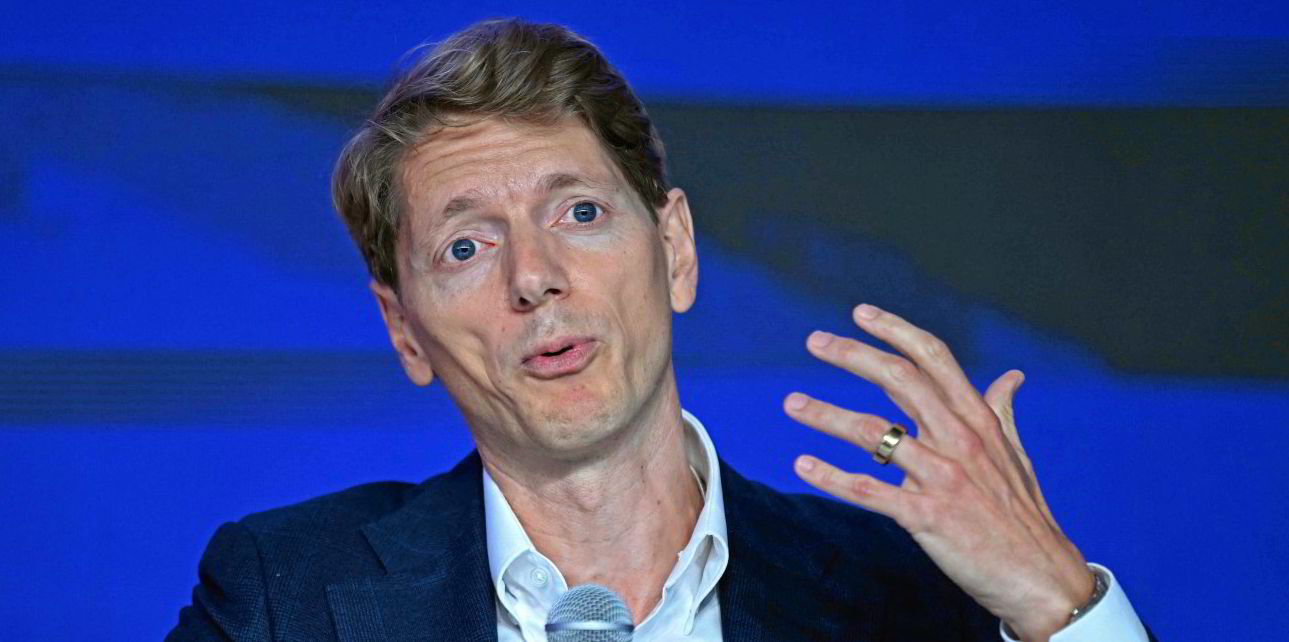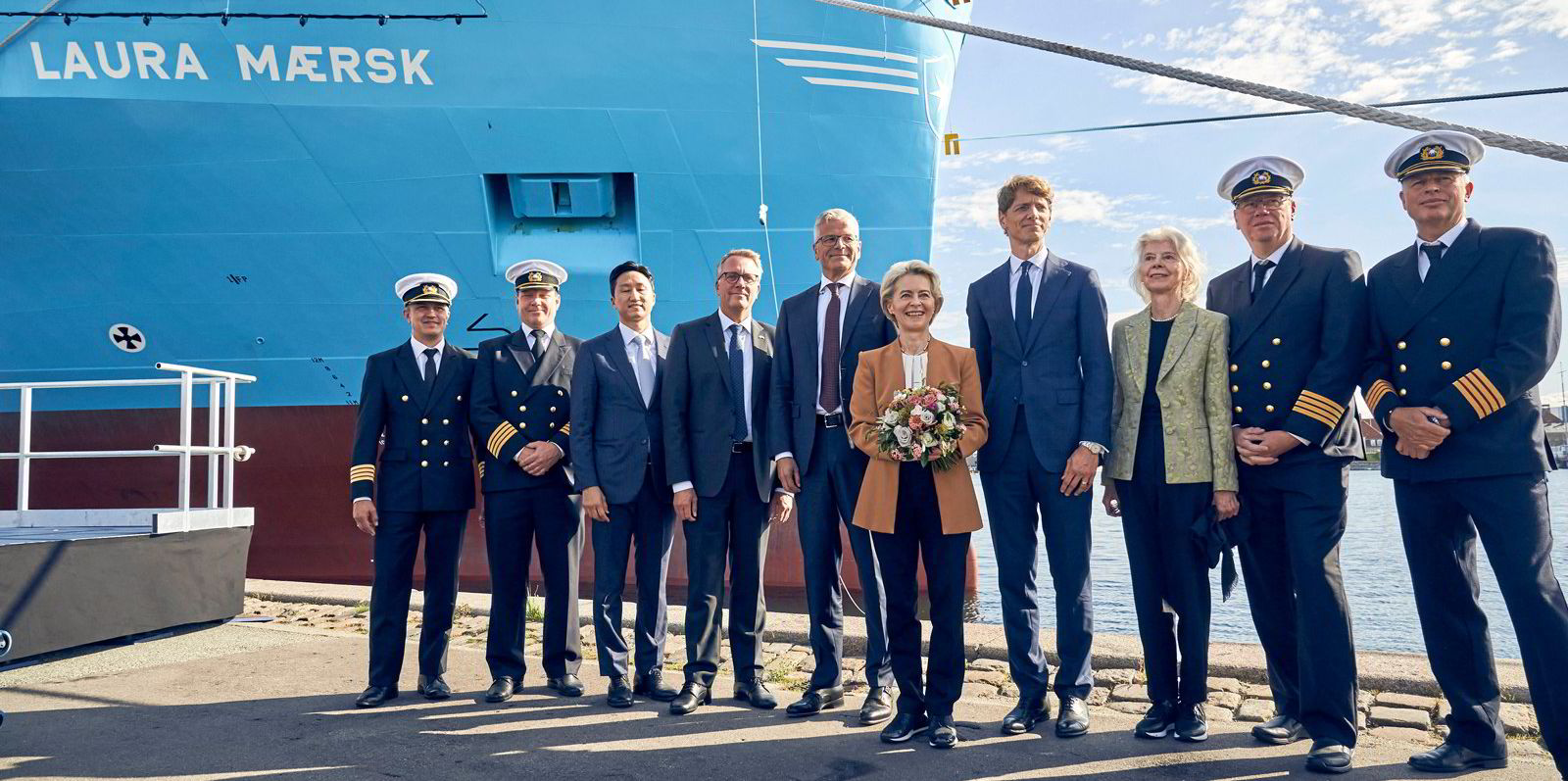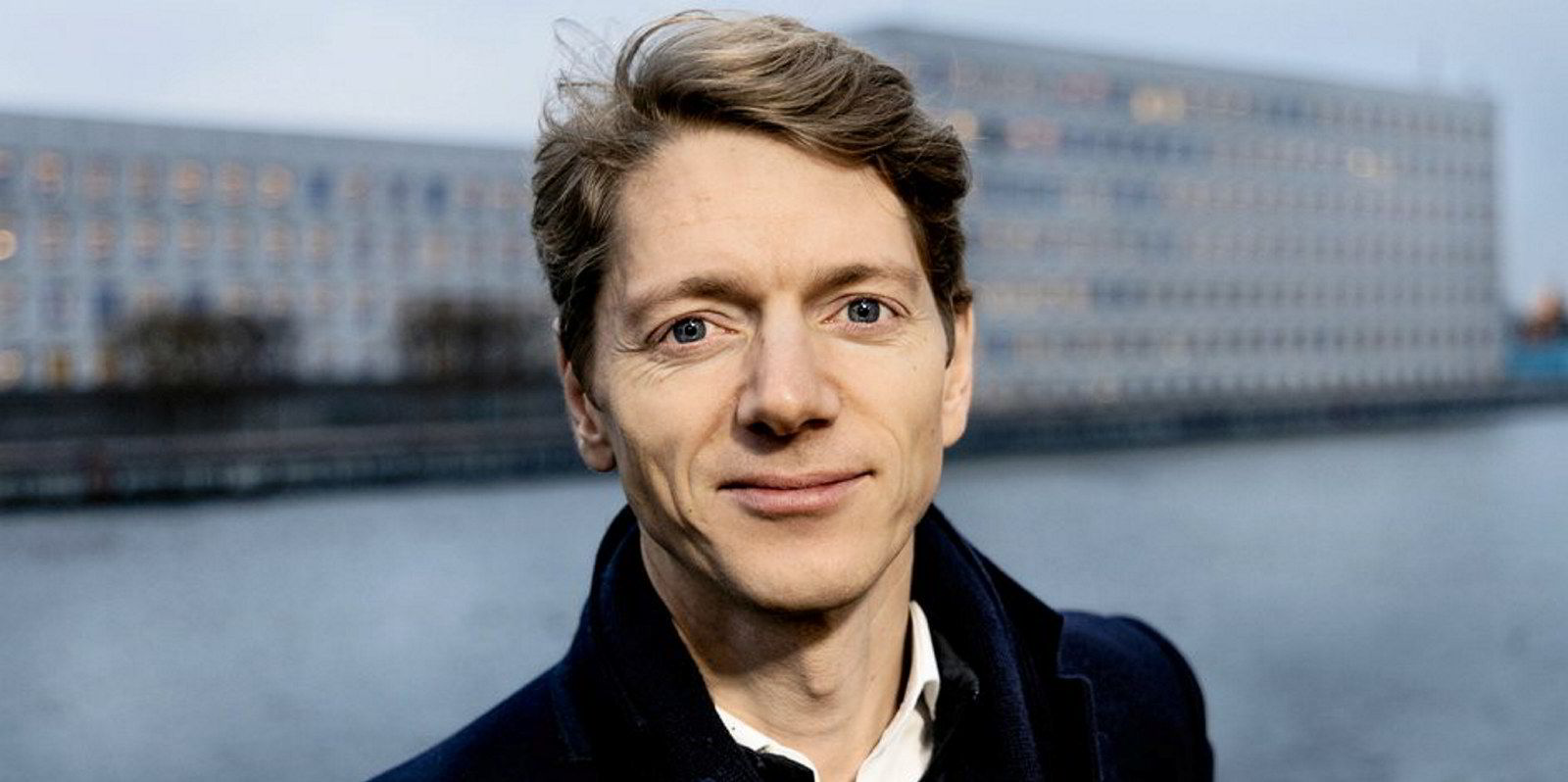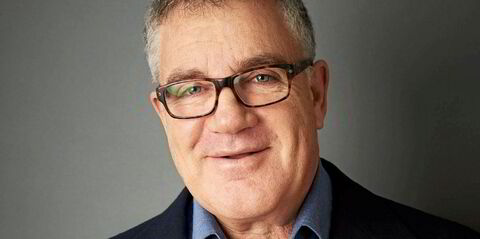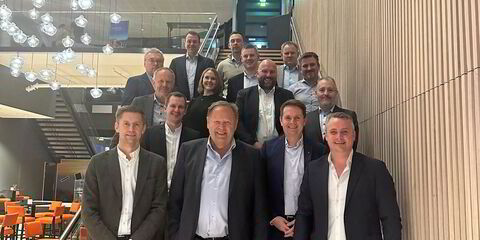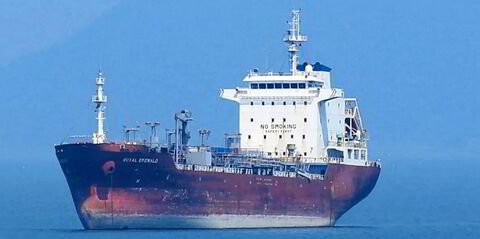Robert Maersk Uggla has no doubt about what is his generation’s biggest global challenge.
And like former US vice president Al Gore, he believes the question is not how to solve the climate crisis, but whether it can be done in time.
For Uggla, that means the debate has moved on in shipping too.

“The most important question is no longer how to develop new technologies, but rather how to speed up the implementation of solutions readily available,” he says.
That approach helps explain why the 45-year-old is pushing the green transition in his role as chief executive of investment company AP Moller Holding and chair of container shipping giant AP Moller-Maersk.
Unusually for a shipping company, Maersk has been lauded for its actions by green lobby groups. Ship It Zero, a coalition of groups campaigning for big retail brands to take a more aggressive stance on green fuels in ocean shipping, listed Maersk at the top of its decarbonisation report card on 10 liners in August.
It had “demonstrated remarkable leadership”, having backed up commitments with action.
Maersk set the pace in liner shipping in 2018 with an industry-first climate response committing to decarbonise shipping operations by 2050.
It later raised its target by a decade by aligning itself with the Science Based Targets initiative to reduce global warming by 1.5C. That commits signatories to cut emissions to practically zero carbon by 2040. The company also aims to transport a minimum of 25% of ocean cargo using green fuels by 2030.
The pivotal moment came when Maersk decided to adopt methanol as a marine fuel.
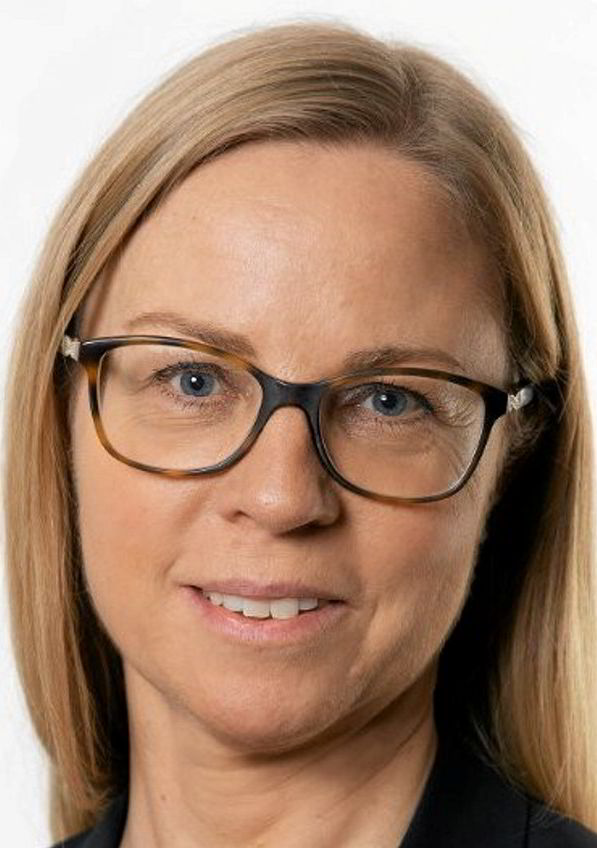
At a time when most liner operators were still touting LNG as a solution to help decarbonise, Maersk could have done the same, but in February 2021 it opted to order the first in a series of methanol-powered container ships. It has since placed orders for 25 ships to be powered by green methanol.
Other companies have followed suit, with orders for about 170 ships — of which more than 100 are container vessels — being built or retrofitted to sail on green methanol.
The pace at which shipping companies have swung behind methanol seems to have surprised Maersk itself.
It initially sought to get the first methanol-enabled vessel on the water in 2030. That proved too pessimistic and the first methanol-fuelled vessel was delivered this year.
The 2,100-teu Laura Maersk was named at a high-profile ceremony in Copenhagen in September at which Uggla made the comments quoted in this article. The vessel is named after the Laura, the first ship to sail with the company’s iconic star. That ship, built in 1875, was propelled by a coal-fired steam engine and was replaced about 100 years ago with the first vessel with a diesel engine.
“This is the beginning of a green revolution of our global supply chains,” Uggla said in Copenhagen.
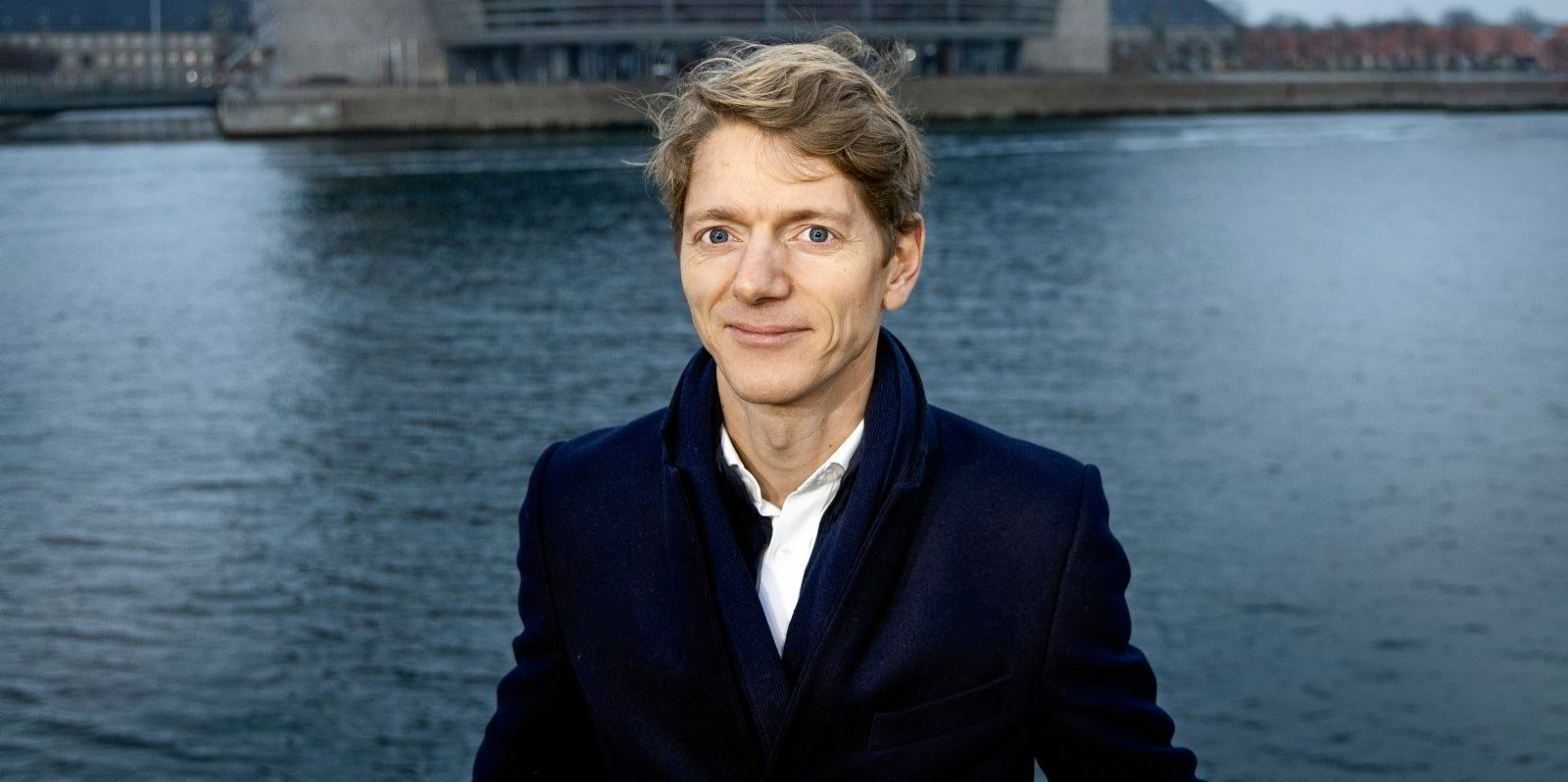
Such moves continue to gain the company plaudits from environmental monitors.
Maersk is one of just three shipowners and operators that scored an A grade in Position Green’s annual report card for Nordic-listed companies’ sustainability disclosures.
Uggla espouses the family belief that AP Moller Holding should deliver a positive impact on society, supported by management with an evangelical zeal on environmental issues.
The head of energy transition, Morten Bo Christiansen, leads a diverse team including Emma Mazhari (green sourcing) and Ingrid Marie Vincent Andersen (energy transition sustainability). And its executive team — formerly led by Soren Skou and today by Vincent Clerc — last year linked remuneration to executives’ performance on environmental, social and corporate governance targets.
The carrier is investigating other fuels, but sees “green methanol” as the only scalable green fuel option this decade.
That remains a challenge. As Uggla pointed out, by 2030, Maersk alone needs up to 5m tonnes of alternative fuels if it is to deliver its green pledge. Today, global production of green methanol is less than 100,000 tonnes.
Maersk and the holding company are trying to address that, and in September unveiled a joint venture to produce green methanol “at scale”. The independent company, called C2X, will build, own and operate production assets.
But Uggla sees the partnerships as necessary to develop green fuels requirements in the future: “No company, no investor, can pull this off by themselves.”
